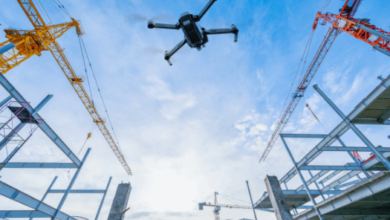Why AI Employee Tracking Can’t Build a Great Company

These days, technology plays a huge role in businesses. One key area is Artificial Intelligence (AI). AI promises to help companies work better and be more productive, but when it comes to monitoring software, relying only on AI may not be the best solution. There are many reasons why using just AI employee tracking can’t build a truly great company. Let’s explore these reasons in detail.
Reasons to Use Tracking Software
Lack of Human Connection
Having a strong bond between workers is key for a great company. Yet, AI systems that track employees miss this human touch. These tools only focus on numbers and data. They ignore how people feel and interact. In today’s digital world, real connections matter a lot. They boosts teamwork, fresh ideas, and shared goals. All of these traits build a united, high-performing team.
Erosion of Trust
Believing in each other is vital for any organization’s success. Using AI to watch over workers without being open can harm the faith between leaders and employees. When workers feel, they are always being checked, and it makes them worry and doubt. It goes against the company’s goal of working well together. Being clear is key to fixing these issues. By involving workers in making decisions and explaining why and how AI tracking helps, organizations can build a community of trust and responsibility.
Inflexibility in Adaptation
AI employee tracking is a big problem. It cannot adapt well. These systems follow set rules and instructions. But humans behave differently, and workplaces change often. Great companies need to be flexible and respond quickly to new situations. Relying only on AI tracking can stop innovation and make it hard to adapt. To fix this issue, companies should use both AI tracking and human judgment. Humans can provide nuanced insights and strategic thinking that AI lacks. Together, they can make better decisions.
Neglecting Employee Well-being
A great company values its employees’ happiness and well-being. However, AI employee tracking systems often focus too much on productivity. They don’t think about how this can hurt employees’ mental health and work-life balance. Always pushing for more productivity can lead to burnout and unhappiness. It hurts the company in the long run. To keep employees well, companies should look at the whole picture. They should consider things like workload, job satisfaction, and work-life balance not just productivity numbers.
Limited Scope of Evaluation
AI can give helpful information from data that can be measured. But it struggles when looking at qualities that can’t be measured easily, like creativity, critical thinking, and emotional intelligence. These qualities are very important for building a successful company. Human judgment and intuition are key for recognizing and growing these qualities. AI alone can’t do this. By using both AI tracking and human-focused ways to develop talent and evaluate performance, companies can build a workforce that isn’t just productive but also innovative and able to bounce back from challenges.
Privacy Concerns
Using AI to track employees raises worries about privacy. Workers may feel uneasy knowing their every move is watched and studied. It could make them upset and unwilling to cooperate. Also, if sensitive data from these systems gets misused or mishandled, it could bring legal and ethical issues and could damage the company’s reputation and make employees and customers lose trust. To fix these concerns, companies must focus on keeping data secure and following privacy rules, and you can consider the best employee tracking software like controlio. They must handle employee data responsibly and openly.
Potential for Bias
If the training data contains biases, the AI will also be biased. This could lead to unfair treatment of employees based on gender, race, or socioeconomic status. The AI tracking system may discriminate against certain groups instead of being fair. To prevent this, companies must take steps to promote diversity and inclusion. They should involve diverse perspectives when creating and using AI systems. Companies should also regularly check the AI algorithms for any biases. By taking these steps, organizations can build an inclusive workplace culture.
Diminished Employee Autonomy
A great company allows its workers to be independent. They encourage staff to make their own choices and decisions. But, if done too much, AI tracking systems can take away worker freedom. The system watches everything workers do. It tells them how to work. It stops people from being creative. It makes them unhappy with their jobs. Companies should give clear rules. But they should also let workers choose how to get the job done in their own way.
Conclusion
Technology like AI is very useful for businesses. It helps companies work better. However, using AI to watch over workers is tricky. AI systems can give companies important information. But they cannot replace human qualities. Things like trust, understanding, and freedom are key to building a great company. As the digital world grows, companies must balance AI technology and human values. Businesses need both tech and people to really succeed. Only when companies do both can they thrive now and in the future.
Frequently Asked Questions (FAQs)
What is the difference between AI employee tracking and older methods?
AI monitoring uses computer programs to study information. It gives updates on what is happening now. Older ways often needed people to watch and write down what they saw.
What good things can AI employee tracking do?
It can help people work better. It shows how to use time and supplies well. It lets bosses make smart decisions using real information.
How can companies keep employees’ privacy safe?
They must make data security the top concern. Employees should know what is tracked and say it is okay. Companies must follow all privacy laws strictly.




